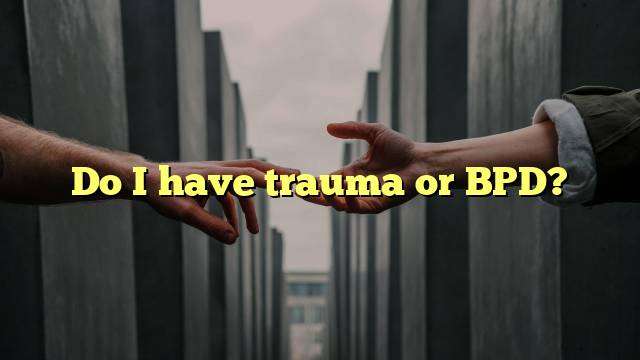Do I Have Trauma or BPD?
There are a number of mental health issues that can affect individuals, and two of the more commonly discussed ones are trauma and borderline personality disorder (BPD). It can be difficult to differentiate between the two, as they both share similarities in terms of symptoms, but they are distinctly different conditions.
What is Trauma?
Trauma is a type of psychological injury or distress that is caused by an extremely traumatic event or series of events. It can be physical, psychological, or both. Symptoms of trauma can include flashbacks, nightmares, difficulty sleeping, intrusive thoughts, avoidance of activities or places associated with the trauma, feeling numb, experiencing guilt or shame, or feeling hopeless.
What is BPD?
Borderline Personality Disorder (BPD) is a mental health condition characterized by difficulty regulating emotions and thoughts, impulsivity, unstable relationships, and fear of abandonment. Symptoms of BPD can include self-harm, suicidal thoughts, feelings of emptiness, difficulty trusting others, feelings of being out of touch with reality, difficulty controlling anger, and difficulty maintaining relationships.
Distinguishing Trauma from BPD
Though it can sometimes be difficult to tell the difference between trauma and BPD, there are a few key differences. PTSD is typically focused on an extremely traumatic incident or a series of incidents and the symptoms tend to be outwardly noticeable, whereas BPD revolves around the fear of abandonment and tends to be inwardly displayed (self-harm, self-deprecation, self-doubt).
Treatment Options
For both trauma and BPD, treatment typically consists of a combination of medication and therapy. Cognitive-behavioral therapy (CBT) is a popular choice for both conditions, as it can help individuals learn how to better manage their symptoms. Medication may also be prescribed to help alleviate symptoms, such as selective serotonin reuptake inhibitors (SSRIs) for depression or anxiety.
When to Seek Help
If you or someone you know is struggling with trauma or BPD, it is important to seek help as soon as possible. Treatment can be beneficial in helping individuals to manage their symptoms and to lead healthier, more productive lives. Speak with your doctor or a mental health professional if you are in need of support or have any questions or concerns.


